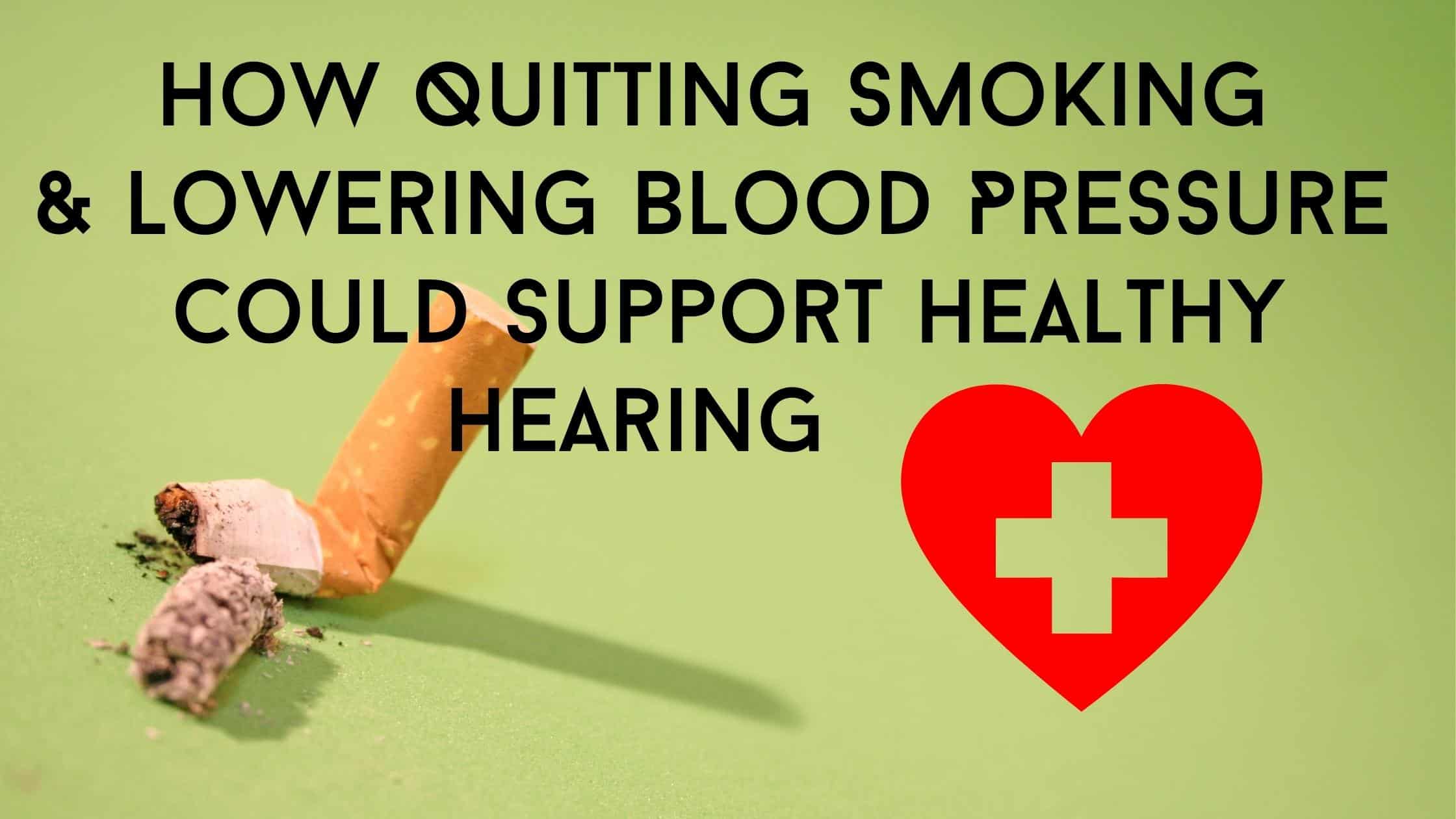Hearing loss is associated with several other medical conditions and behaviors that increase the risk of damaging hearing health. Impaired hearing impacts nearly 1 in 5 people and can be caused by several factors including high blood pressure and smoking. Fortunately, these are factors that can be addressed in ways that could prevent the development of hearing loss and support overall health.
Link Between Smoking & Hearing Loss
Research has established a link between smoking and hearing loss. Studies show that smoking increases the risk of developing impaired hearing. In a 2019 study, researchers investigated this relationship in an 8-year study based in Japan:
- Study: included 50,195 participants, ages 20-64, without hearing loss at the beginning of the study. Hearing tests were performed annually and smoking behavior assessed by a questionnaire. The population group included smokers, nonsmokers, and people who quit smoking.
- Findings: After 8 years, 5,107 people developed hearing loss. Compared to non-smokers, smokers were:
- 60% more likely to develop high frequency hearing loss
- 20% more likely to develop low frequency hearing loss
Additionally, researchers found that the more people smoked (cigarettes per day), the likelier it was that they would develop hearing loss. People who smoked:
- 10 cigarettes/day: 40% more likely to develop high frequency hearing loss
- 11-20 cigarettes/day: 60% more likely to develop high frequency hearing loss
These significant statistics reveal that there is a strong correlation between smoking and hearing loss.
High Blood Pressure & Hearing Loss
Blood pressure refers to the force of blood pushing against the walls of arteries which carry blood throughout the body. High blood pressure, also known as hypertension, is when this force is excessive which can damage blood vessels. Various factors can contribute to hypertension including:
- Obesity
- High salt intake
- Lack of physical activity
- Smoking
Over 70 million people live with hypertension which is a risk factor that increases the chances of developing other medical conditions including hearing loss. Studies have shown that people with high blood pressure are more likely to experience impaired hearing.
Both high blood pressure and smoking impact blood vessels and blood flow throughout the body. The ingredients in cigarettes (nicotine and carbon monoxide) and damage from high blood pressure can contribute to hearing loss by:
- reducing oxygen levels and restricting blood vessels throughout the body, including in the inner ear. These blood vessels carry blood to the ears and the various components that work to absorb and process soundwaves.
- disrupting neurotransmitters in the auditory pathways that are in the inner ear. This prevents converted soundwaves from traveling to the brain where they would be processed; making it difficult for the brain to understand incoming sound.
People can significantly reduce their risk of hearing loss by quitting smoking and actively working on lowering blood pressure.
Tips for Protecting Hearing Health
There are useful ways that people can be proactive about their hearing health and prevent harm.
-
- Quit Smoking: one of the lead researchers (Huanhuan Hu) involved in the 2019 study stated: “Quitting smoking virtually eliminates the excess risk of hearing loss, even among quitters with short duration of cessation. “Because the risk of hearing loss increases with the number of cigarettes smoked per day, if quitting is impossible people should still smoke as little as possible.” There are various ways and strategies people use to quit smoking, explore your options online to figure out what would work best for you!
- Lowering Blood Pressure: there are numerous ways you can lower your blood pressure including:
- Exercise: increase your daily physical activity by taking walks, exercising, stretching etc.
- Diet: reduce intake of salt, sugar, and processed foods. Eat more plant-based foods and whole grains.
- Reduce Stress: engage in calming activities (yoga, meditation, drawing etc.)
- Limit alcohol consumption
- Quit smoking
- Hearing Tests: it is also important to have you hearing assessed regularly. Hearing tests measure your hearing ability in both ears and identify and impairment. Early intervention can be incredibly helpful in effectively treating the impairment and transitioning into better hearing health.
By quitting smoking and lowering blood pressure, you can improve your health including your sense of hearing!
If you have noticed changes in your hearing, contact us today to schedule a hearing test!

